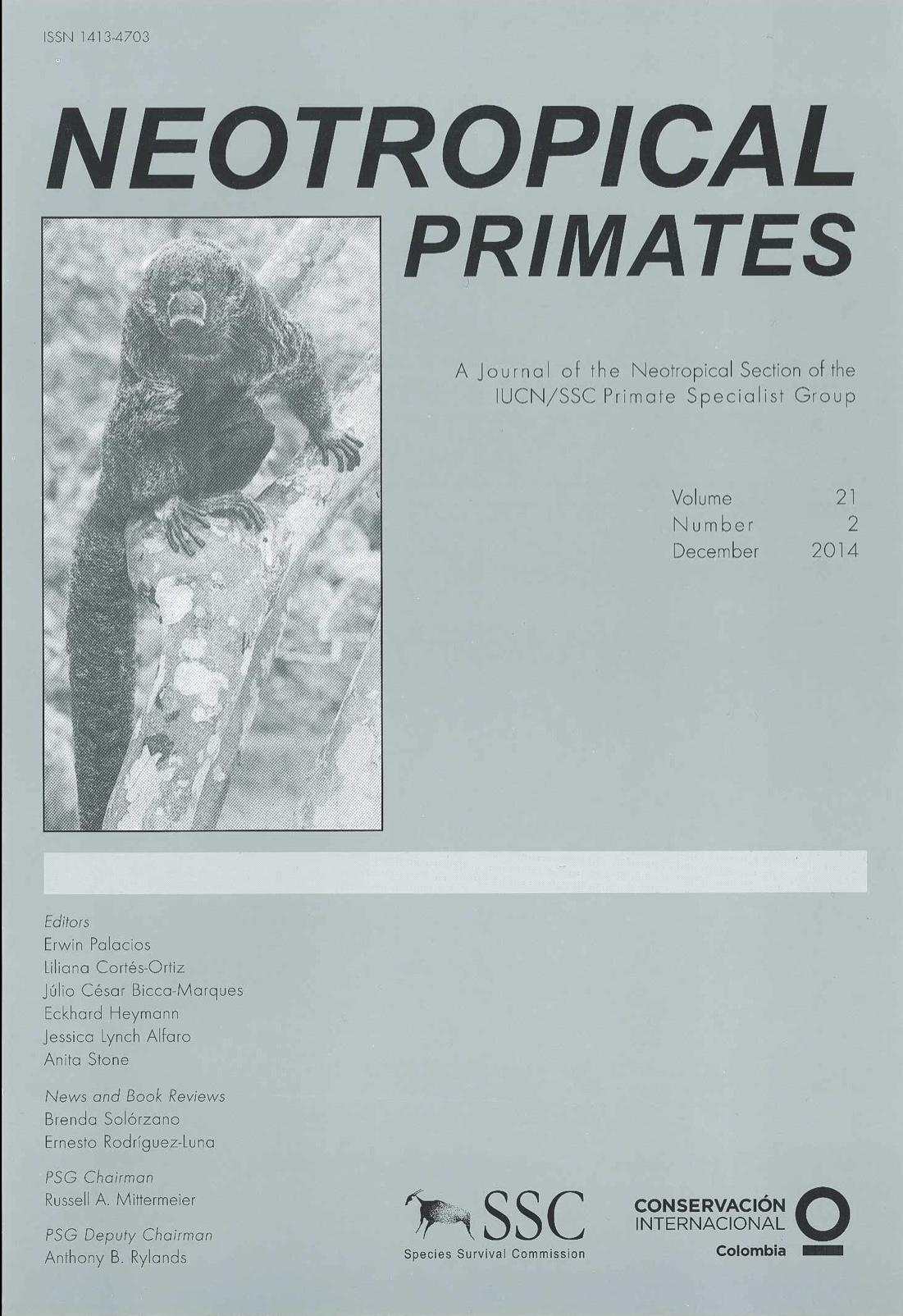Jealous of mom? Interactions between infants and adult males during the mating season in wild squirrel monkeys (Saimiri collinsi)
DOI:
https://doi.org/10.1896/044.021.0201Keywords:
social conflict, sexual interference, nursingAbstract
Squirrel monkeys (Saimiri collinsi) are seasonal breeders that live in large social groups in which females are dominant to males. Females have one infant per year, and the nursing period lasts six to eight months. Preliminary observations in the wild indicated that during the mating period (eight weeks: July and August in our population), the infants show agonism directed at males who approach their mothers. This directed sexual interference by infants has rarely been reported for neotropical primates. Our study reports observations in a natural population of Saimiri collinsi with the aim of describing the social behavior of infants during the breeding season, especially with regard to adult males in the group. Infants of both sexes were observed during three mating periods (2011, 2012, 2013), to test hypotheses about the possible function of infant harassment directed at adult males. The behavior of infants (variables: activity and nearest neighbor) was sampled by the focal animal method as well as ad libitum observations. We recorded 99 cases of agonism and 17 cases of tolerance between nearby males and infants via the all-occurrence method. Thus, 85% of interactions between adult males and infants involved agonism. These results suggest that infant interference can present a cost to adult males during the breeding season.

Downloads
Published
Issue
Section
License

This work is licensed under a Creative Commons Attribution-NonCommercial-ShareAlike 4.0 International License.


